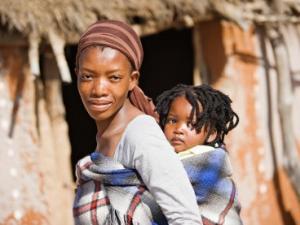This month, the population of Planet Earth will reach seven billion. That’s a lot of people. Here’s a quick look at recent history.
- 1800 900 million
- 1900 1.6 billion (added 700 million in 100 years)
- 1950 2.4 billion (added 2 billion in 50 years)
- 1980
5.14.4 billion (added 2 billion in 30 years) - 2000 6 billion (added
1.31.6 billion in 20 years ) - 2011 7 billion (added 1 billion in 11 years)
 Until very recently we were headed for population Armageddon; in the 1970’s demographers began sounding an alarm about what they saw in their projections. And we very likely would have gotten to that awful place, but for one thing. Contraception. In the last 20 years, access has spread worldwide in spite of the religious resistance (from Christians here in the US and from large segments of the Muslim world). Women embraced birth control; lower birth rates led to better nutrition, more education and ultimately increased prosperity, which itself is a factor in containing population growth.
Until very recently we were headed for population Armageddon; in the 1970’s demographers began sounding an alarm about what they saw in their projections. And we very likely would have gotten to that awful place, but for one thing. Contraception. In the last 20 years, access has spread worldwide in spite of the religious resistance (from Christians here in the US and from large segments of the Muslim world). Women embraced birth control; lower birth rates led to better nutrition, more education and ultimately increased prosperity, which itself is a factor in containing population growth.
Science. Good.

A friend of mine the other day thought it was 4 billion now – not quite “updated” on the world population since the late 70s.
LikeLike
The Western world has a major impact on the explosion of the world population. We brought modern medecine to poor countries to lower child poverty. We adapted to these discoveries as they they arrived. We made less children because less children were dying. But for these regions, the sudden change was too much too fast. Now, women in these poor countries finally start to adapt to this new reality and… gain access to contraception. It was unbelivably reckless to bring change without thinking ahead. We made the population quadruple in a century. Creating poverty, hunger and wars.
LikeLike
Jay – while I hadn’t thought of that aspect, there’s no way humans are going to delay giving care to others, no matter the outcome for the larger society. It’s not in our nature. If I have vaccine and a kid needs it, I’m giving it to him. In that circumstances we can only be in the here and now.
And modern medicine may mean more chilldren survive childhood, but not enough to affect life expectancy statistics.
As for poverty, hunger and wars – I’d say colonialism and the resulting destabilization had more to do with that.
LikeLike
We did delay care. We experimented in the Western world. Children grew safer and safer and women made less and less babies because less were dying. THEN, we brought our science to the poorest countries. And their population exploded because unlike us, they didn’t have time to adapt to the medical progress. Thanks to the huge innovations in agriculture, we avoided what could have been horrible famines.
LikeLike
Well, population growth in the third world is slowing now – and quite rapidly. Which is reflected in the slow down in world population.
LikeLike
Like HPV vaccines, contraception may sound like a good idea. But without the danger of pregnancy and disease, what’s to prevent a young woman from the unauthorized use of lady parts belonging to her father (until ownership is legally transferred to a purchaser or “husband”)? Harlotry beckons.
LikeLike
Plus, young ladies would get all “uppity”. Can’t have that.
LikeLike
No need to worry as ultra conservatives have told me that the planet doesn’t have a population threshold for humans.
LikeLike
Of course – and the Rapture will take enough people to kick that population number way back . . . .
LikeLike
This is why educational opportunities and reproductive empowerment for females are so important. These things are good in and of themselves, but to boot, educated women who can control their reproductive destinies tend to postpone childbearing and have fewer children. In a world with limited space and resources, we humans need to breed wisely.
LikeLike
And yet we have a loud segment of our population who really beleive – though they won’t admit it- that women should be “pregnant and in the kitchen”.
LikeLike
Quiverfull people come to mind.
LikeLike
Uh…
Check your numbers between 1980 and 2000:
6 minus 5.1 = 3.3?
LikeLike
Dear elvis! I’ll show a correction. I’ll plead typo – at least the story is the same.
Thanks mudge.
LikeLike